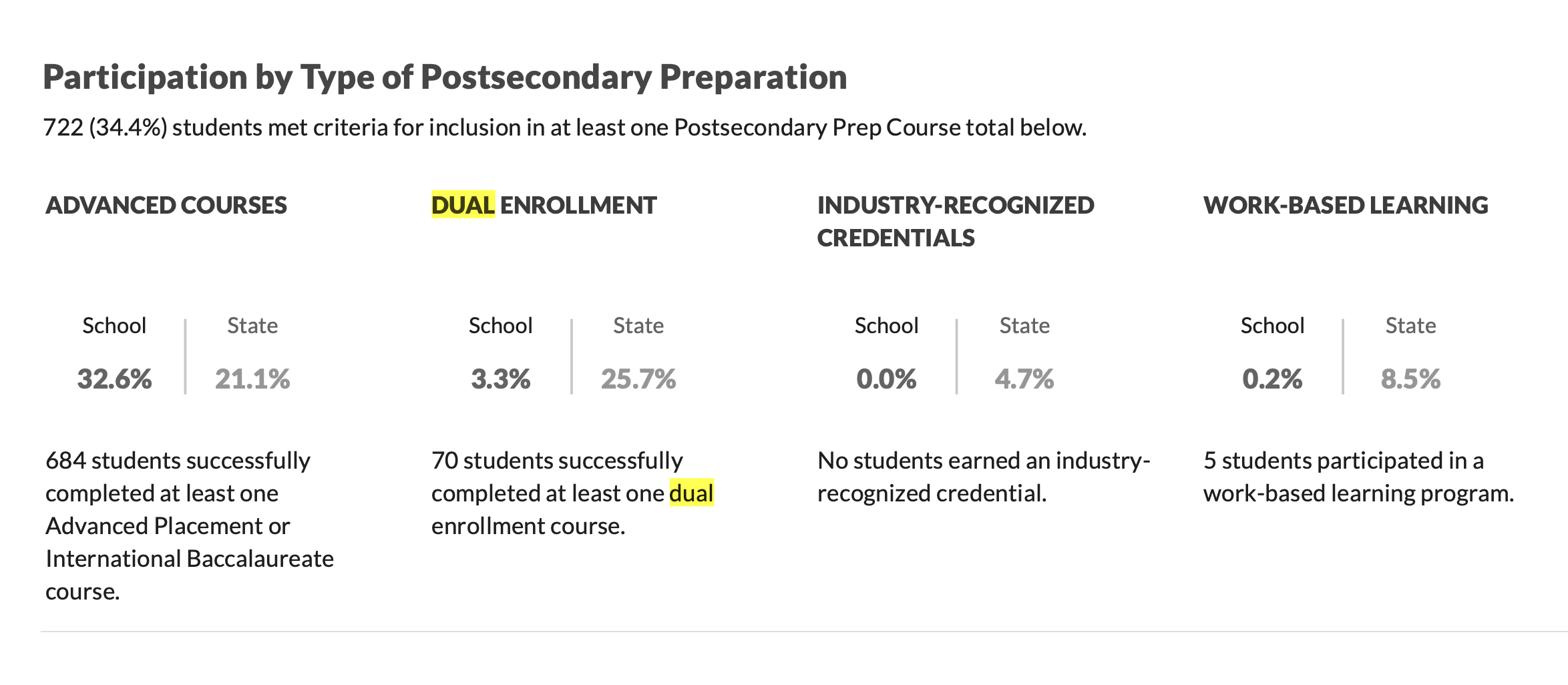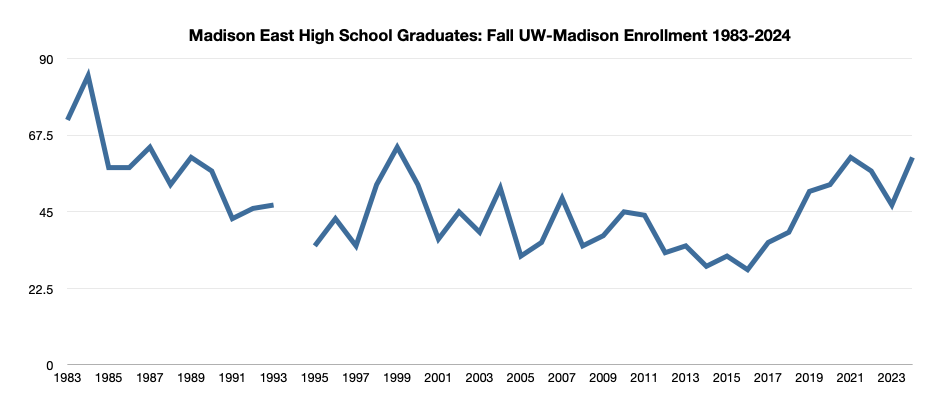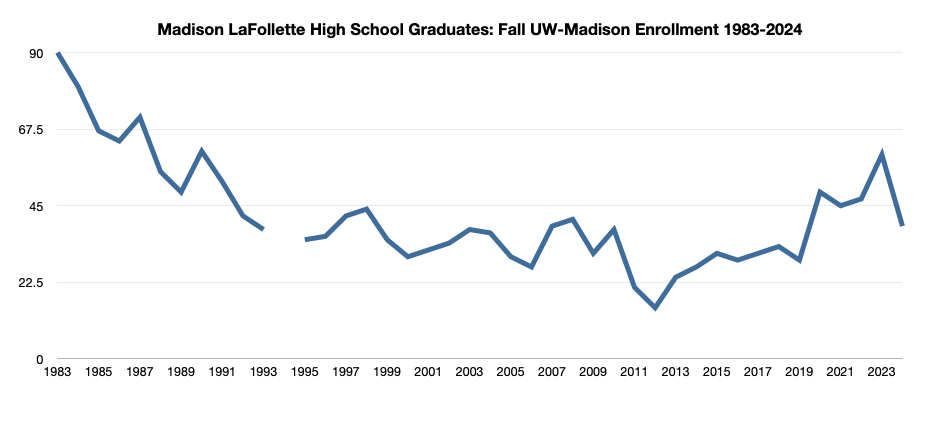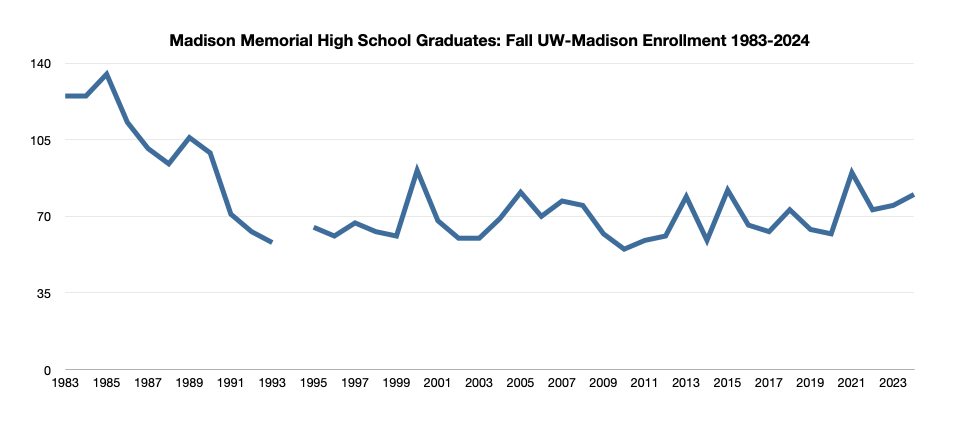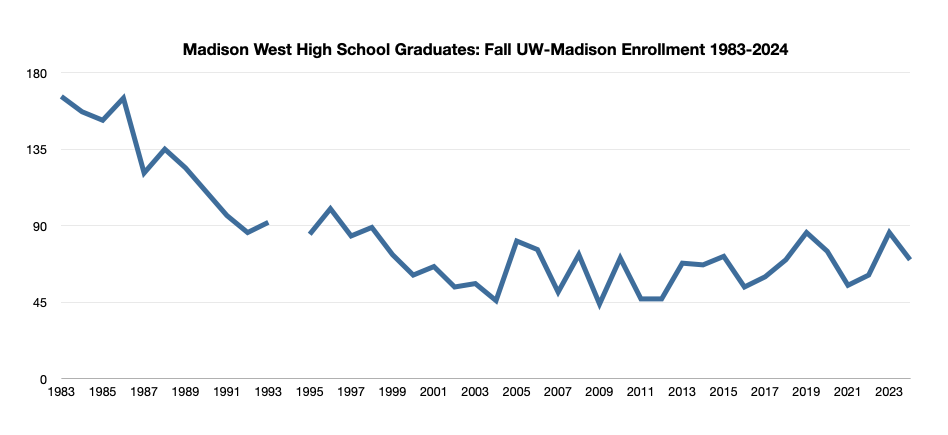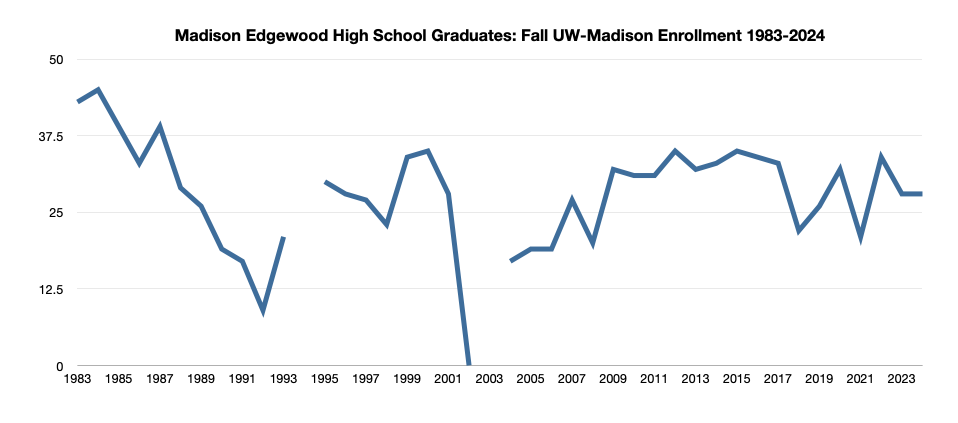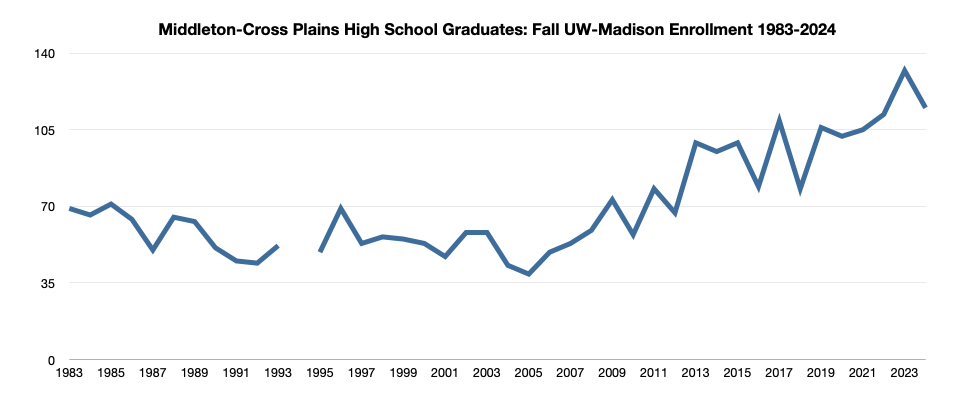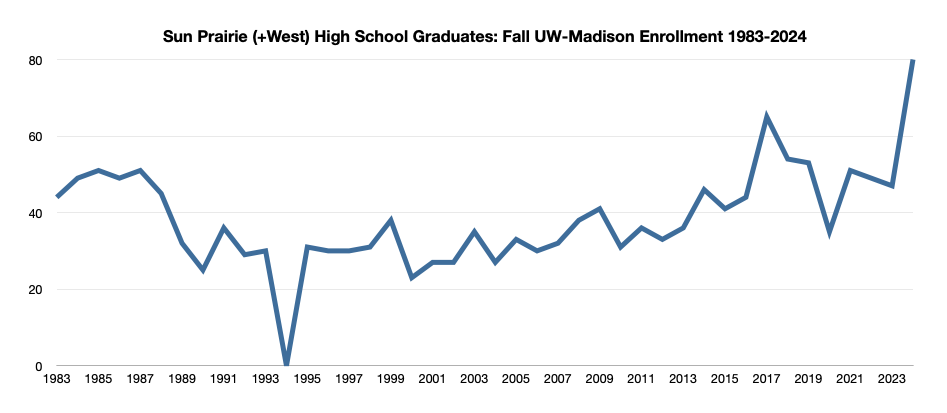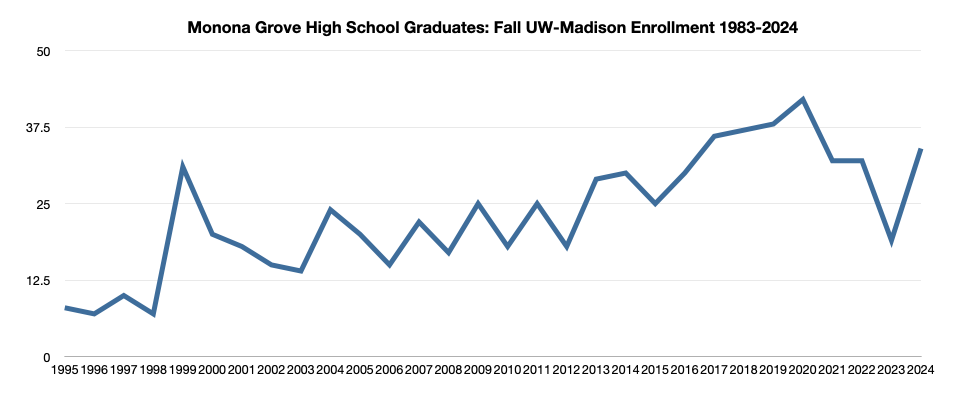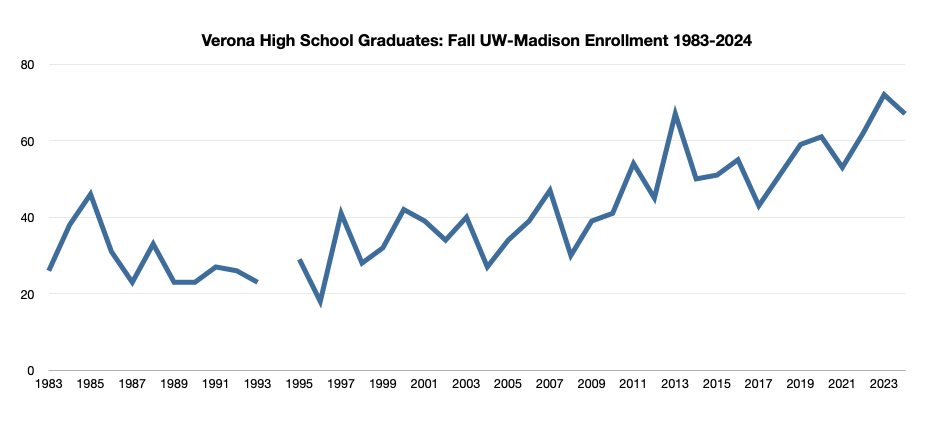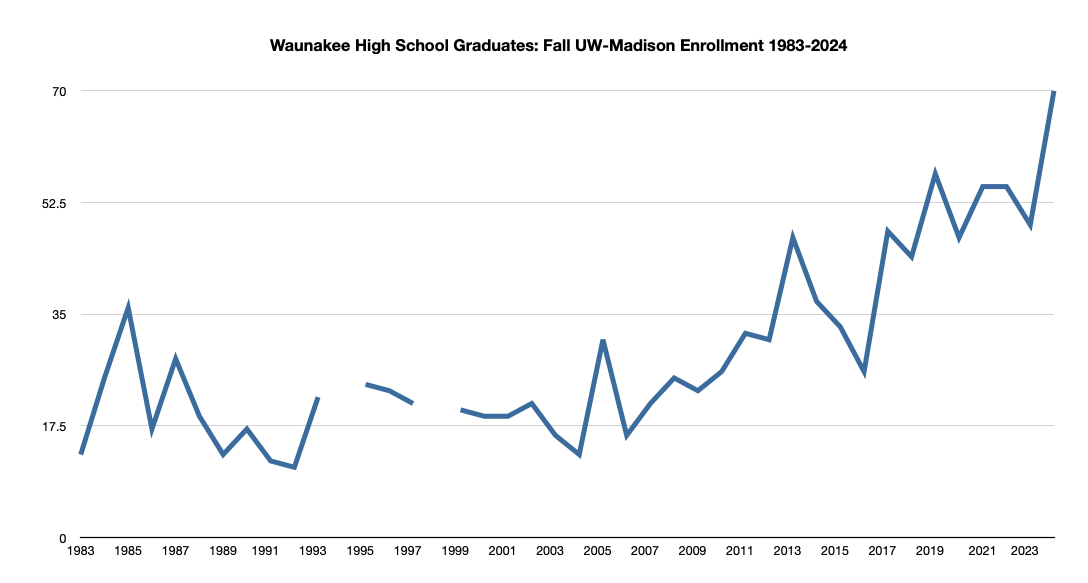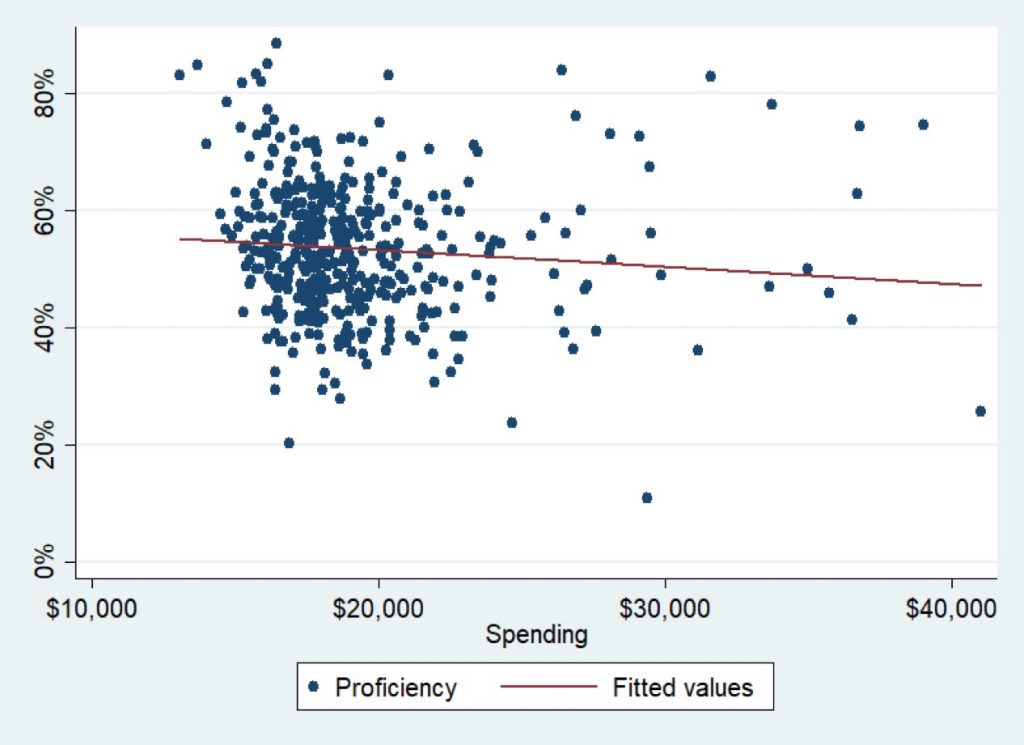Wisconsin Policy Forum
The number of Wisconsin high school students who participate in dual enrollment programs continued its decade-long growth in the 2023-24 academic year, hitting a new record. A combined 78,703 students participated in the dual enrollment programs offered by the University of Wisconsin and Wisconsin Technical College systems, through which they could earn credit at higher education institutions as well as their high schools. This represents more than a quarter (26.6%) of the state’s secondary students across public, private, and home schools, and it is a 3.4% increase over the previous year (see Figure 1).
The Wisconsin Technical College System (WTCS) offers the largest dual enrollment program in the state, enrolling more than four times as many students as the one operated through the University of Wisconsin System (UW). From 2022-23 to 2023-24 (referred to in this brief as 2023 and 2024), however, the UW program grew at a faster rate – by 12.0% to 15,588 students – than the WTCS program, which increased by 1.5% to 63,115 students. Both systems offer an array of programs to meet the various needs of high school students, which sometimes results in similar, parallel programs in each system. In this analysis, individuals who took classes in both systems are counted twice but are unduplicated if they participated in multiple programs within one system.
In our previous report on dual enrollment, we examined participation in the programs using data provided by the state’s two public college systems. Since then, the Wisconsin Department of Public Instruction has added postsecondary preparation programs to its annual report cards for high schools. These programs, which include dual enrollment and Advanced Placement (AP), equip students for higher education or the workforce. With this new information, we are now able to examine participation levels by high school in dual enrollment and other postsecondary opportunities.
…….
The 472 public high schools that reported providing dual enrollment opportunities in 2023 enrolled 259,286 students, and 68,151 of them (26.3%) took advantage of those opportunities.
Participation rates varied across these schools, however. Students from urban schools had the lowest rate of dual enrollment participation at 19.7%, while those in suburbs, towns, and rural communities had participation rates of 28.3%, 30.1%, and 27.6%, respectively — all higher than the state average.
Students from schools with high rates of poverty were less likely to participate in dual enrollment programs. Only 4.3% of students from schools in which more than 75% of the students identified as economically disadvantaged took a dual enrollment course. On the other extreme, schools where less than 25% of students are from economically disadvantaged families reported a dual enrollment rate of 30.5%.
———
Related: A long running issue in the taxpayer funded Madison School District: Credit not for non MMSD Courses
Madison’s high schools compared, using taxpayer funded Wisconsin DPI “report cards”:
Madison East (tap for the “report card”:
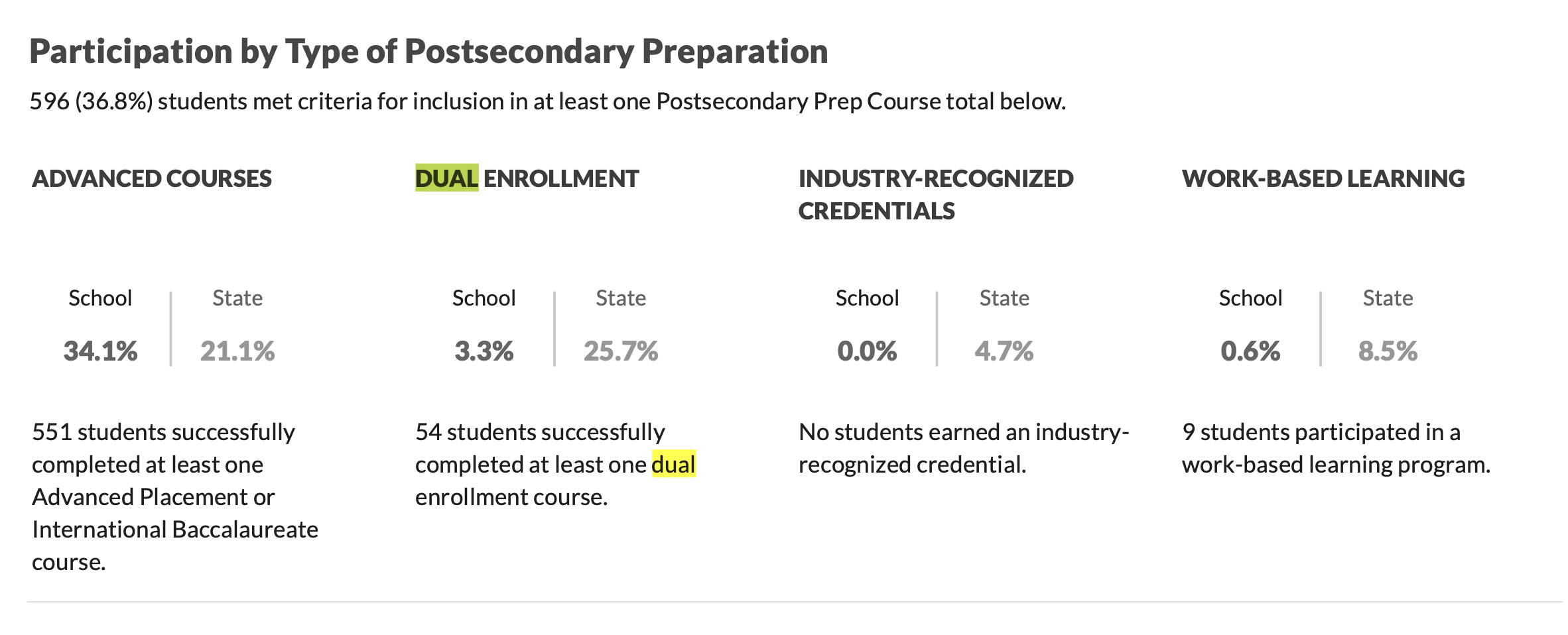
Madison LaFollette (tap for the “report card”:
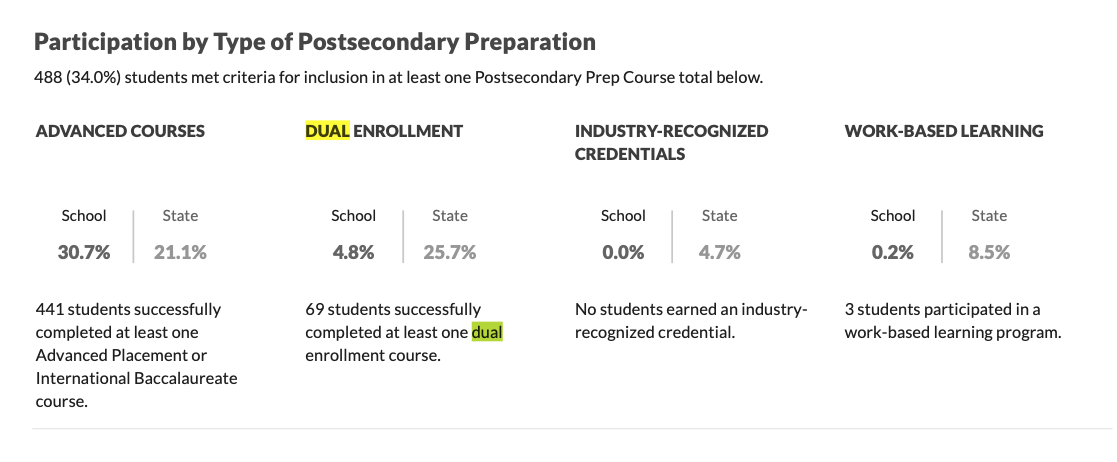
Madison Vel Phillips Memorial (tap for the “report card”:
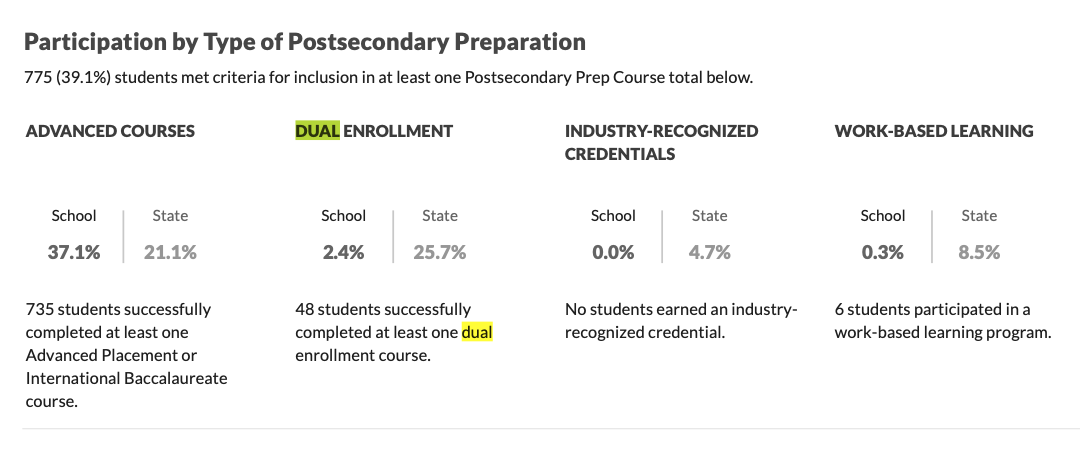
Madison Shabazz (tap for the “report card”:
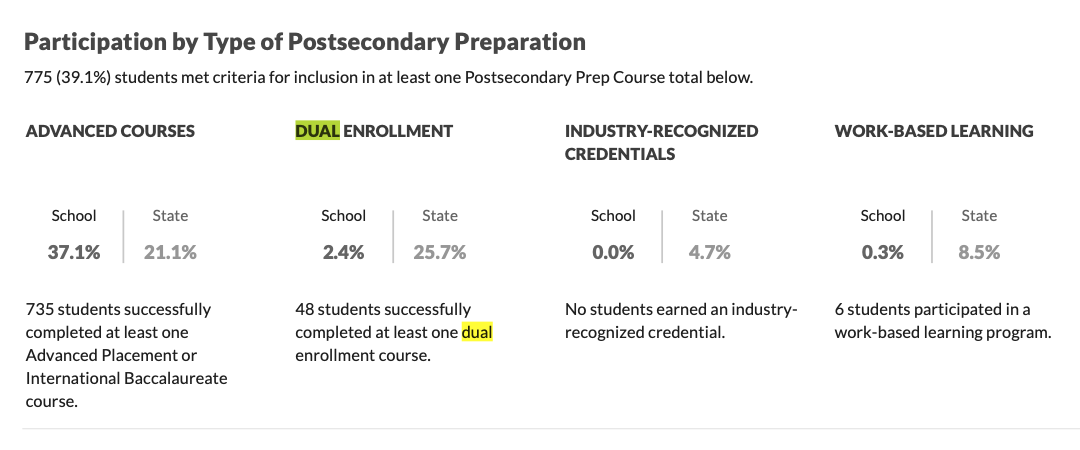
Madison West (tap for the “report card”:
